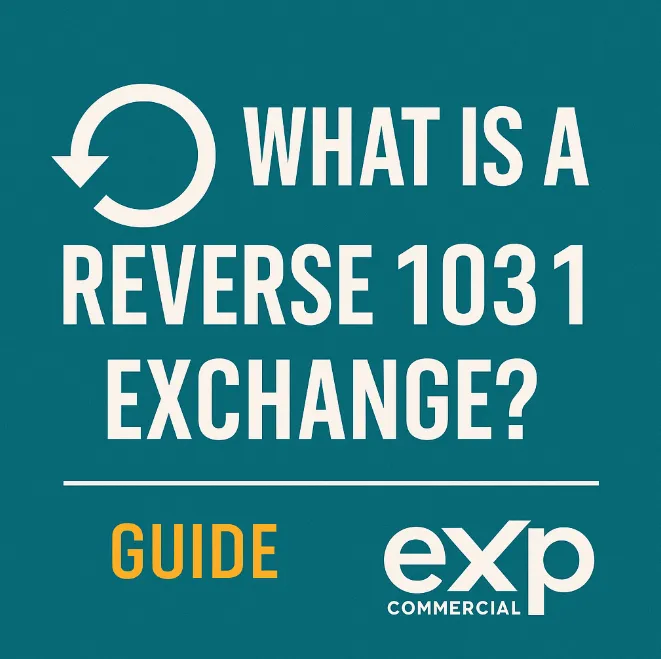
🔄 Reverse 1031 Exchange Explained: How Smart Investors Buy Before They Sell 💼
🔄 Reverse 1031 Exchange Explained: How Smart Investors Buy Before They Sell 💼
💡 What Is a Reverse 1031 Exchange? CRE Investor’s Guide to Tax Savings & Growth 🚀
🔄 What Is a Reverse 1031 Exchange? CRE Investor’s Guide
In commercial real estate investing, timing is everything. If you’ve ever found the perfect property but haven’t yet sold your current one, you may worry about losing the opportunity—or facing a big tax bill. That’s where the Reverse 1031 Exchange comes into play.
✅ The Basics of a 1031 Exchange
A traditional 1031 exchange allows investors to sell one property and reinvest the proceeds into another “like-kind” property while deferring capital gains taxes. However, this strategy typically requires that the relinquished property (the one you’re selling) is sold first.
🔄 What Makes a Reverse 1031 Different?
A Reverse 1031 Exchange flips the process. Instead of selling first, you acquire the replacement property before selling your existing property. This option is crucial when:
· The ideal property becomes available unexpectedly.
· Market timing favors buying before selling.
· Investors want to secure an asset in a competitive market.
With a reverse exchange, an Exchange Accommodation Titleholder (EAT) temporarily holds title to the replacement property until your relinquished property sells.
⏱️ Key Timelines
The IRS rules are strict:
· You have 45 days to identify which property you’ll sell.
· You must complete the entire exchange within 180 days.
Failing to meet these deadlines can disqualify the exchange and trigger capital gains taxes.
💰 Benefits of a Reverse 1031 Exchange
· Tax Deferral – Avoid immediate capital gains taxes.
· Strategic Flexibility – Acquire properties when the timing is right.
· Competitive Advantage – Lock in high-demand assets before others.
· Portfolio Growth – Trade into better-performing or higher-value properties.
⚠️ Challenges to Consider
· Financing Complexity – Lenders may require more stringent terms since the property is temporarily held by an EAT.
· Higher Costs – Reverse exchanges typically involve higher legal and administrative fees.
· Strict Rules – Missing deadlines can invalidate the tax benefits.
📌 Who Should Consider a Reverse 1031 Exchange?
Reverse exchanges are ideal for:
· Developers looking to secure land before selling other parcels.
· Investors eyeing hot-market properties.
· Business Owners who want to transition into new space without business disruption.
👉 Bottom Line: A Reverse 1031 Exchange gives investors the power to buy first, sell later, and still benefit from tax deferral. While more complex than a traditional 1031, it can be a game-changer for those who move strategically in today’s competitive CRE market.
https://www.houstonrealestatebrokerage.com/
https://www.houstonrealestatebrokerage.com/houston-cre-navigator
https://www.commercialexchange.com/agent/653bf5593e3a3e1dcec275a6
http://expressoffers.com/[email protected]
https://app.bullpenre.com/profile/1742476177701x437444415125976000
https://author.billrapponline.com/
https://www.amazon.com/dp/B0F32Z5BH2
https://veed.cello.so/FOmzTty6oi9
© 2023-2024 Bill Rapp, Broker Associate, eXp Commercial Viking Enterprise Team
